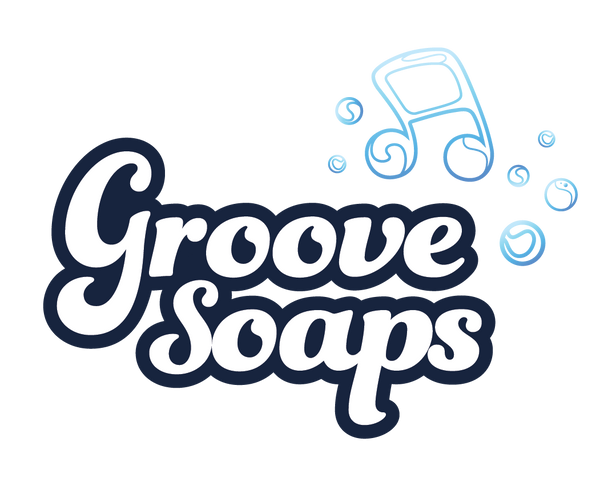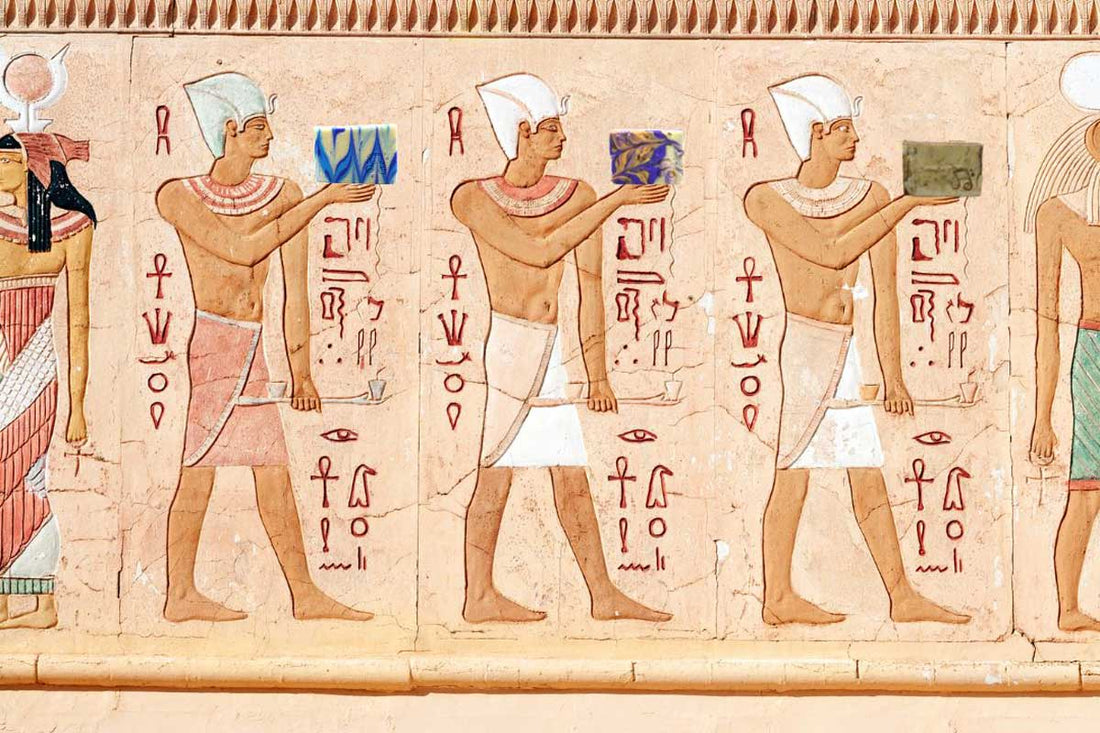
Soap has been around a whole lot longer than you might think! In fact, the sudsy suds have been keeping things clean for at least 4,800 years. The first concrete evidence we have of soap-like substance is dated around 2800 BC.
The first soap makers were Babylonians, Mesopotamians, Egyptians, as well as the ancient Greeks and Romans. All of them made soap by mixing fat, oils and salts. Soap wasn't made and used for bathing and personal hygiene, but was rather produced for cleaning cooking utensils or goods or was used for medicine purposes.
Soap got its name from an ancient Roman legend about Mount Sapo. Rain would wash down the mountain mixing with animal fat and ashes, resulting in a clay mixture found to make cleaning easier. By the 7th century, soap-making was an established art in Italy, Spain and France

The Dirty Truth About Making Soap
Since soap making history goes back many thousands years, the supplies to produce it were fairly basic. Most supplies for soap were those taken from animals and nature; many people made soap by mixing animal fats with lye. The result was a greasy and smelly goop that lifted away dirt. Yuck!
Ancient people used these early soaps to clean wool or cotton fibers before weaving them into cloth, rather than for human hygiene. Interestingly, not even the Greeks and Romans, who pioneered running water and public baths, used soap to clean their bodies. Instead, men and women immersed themselves in water baths and then smeared their bodies with scented olive oils.
By the Middle Ages, washing was regarded as an occasional necessity and bathhouses sprung up in many towns where people could pay to have a bath. This time period coincided with new vegetable-oil-based soaps, which were hailed for their mildness and purity and smelled good, had come into use as luxury items among Europe’s most privileged classes.
The first of these, an olive-oil-based bar soap infused with aromatic laurel oil, was produced in Syria and brought to Europe by Christian crusaders and traders. French, Italian, Spanish and eventually English versions soon followed.
The settlement of the American colonies coincided with an age when most Europeans, whether privileged or poor, had turned away from regular bathing out of fear that water actually spread disease. Colonists used soap primarily for domestic cleaning, and soap-making was part of the seasonal domestic routine overseen by women.

Modern Day Soap Miracles
Today, soap is produced from fats and an alkali. The cold process method is the most popular soap making process today, while some soap makers use the historical hot process.
Modern commercially manufactured soaps are highly specialized, lab-engineered products. Synthesized animal fats and plant-based oils and bases are combined with chemical additives, including moisturizers, conditioners, lathering agents, colors and scents, to make soaps more appealing to the senses. But they cannot fully mask its less-desirable ingredients, including shower gels’ petroleum-based contents.

The Groove Soaps’ Way
Most of today’s mainstream soap is made with ingredients you can’t even pronounce, so why would you put it on your skin? At Groove Soaps, we herald back to the age-old soap makers, who only use the purest, plant-based ingredients to assure our soaps are not only soft on sensitive skin, but really get you clean, too.
We make the highest quality hand-crafted, plant-based soap using just six ingredients - coconut oil, sustainable palm oil (RSFO palm oil), canola oil, olive oil, castor oil, and vitamin E. Our process is a nod to the traditional soapmakers of times past. We believe today’s manufactured soap doesn’t have the same soul, so we prefer handcrafted soap making due to its pure art form.
All of our soaps contain only natural essential oils as the fragrance. An essential oil is a natural product extracted from a single plant species. Not all plants produce essential oils, and in the plants that do, the essential oil may be found in the roots, stems, leaves, flowers, or fruits. For example, our Florida Citrus Slab is infused with locally sourced orange peels and orange essential oils.
Essential oils are all natural, they have medicinal and aromatherapy properties, and they do not contain nearly as many carcinogens and other toxins as do fragrance oils. Essential oils often have a greater depth and character than the more flat fragrance oils.
Studies have shown that essential oils may also help:
- Boost mood
- Improve job performance through reduced stress and increased attentiveness
- Improve sleep
- Kill bacteria, funguses and viruses
- Reduce anxiety and pain
- Reduce inflammation
- Reduce nausea
- Relieve headaches

Soap is More Than Just Soap
We believe soap has the ability to revive skin and rejuvenate the mood, so we are dedicated to making soap with soul. By creating a sensory-inclusive soap that is effective in cleaning but gentle on skin, we can elevate people’s moods through the smell and feel of our soaps. We are dedicated to bringing art to the world through each bar of soap. Our pure and simple ingredients, and extraordinarily rich and enveloping scents that transport you to wherever your shower concerts take you.

